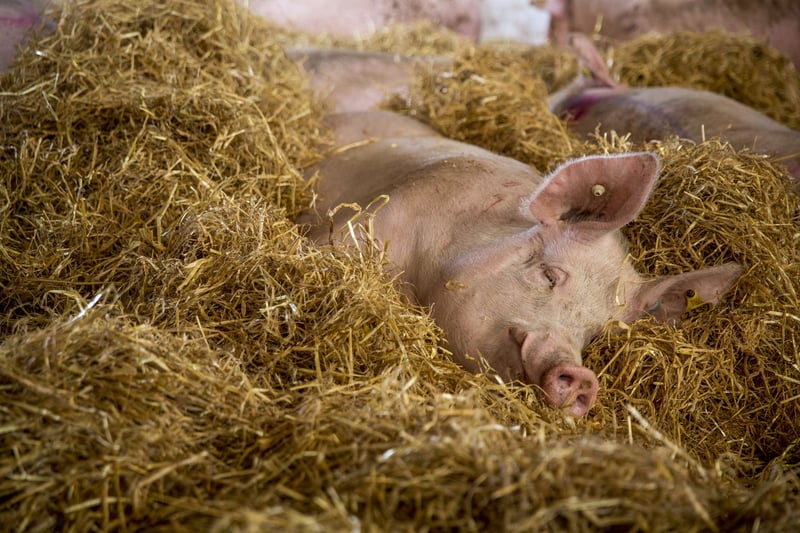
Let’s stop playing ‘Piggy in the Middle’ when it comes to animal welfare
News
New Zealand is currently negotiating a Free Trade Agreement with the European Union which will include a chapter on animal welfare for the first time. The inclusion of animal welfare in trade agreements is a welcome recognition that the trade in food products has implications for the lives of millions of animals.
However, it will only be of benefit to animals if both sides agree that when aligning standards, it is a race to the top, not the bottom. Where European standards are higher, we should adopt them. And conversely, they should adopt our higher standards where that is the case. To do otherwise would potentially undermine animal welfare in both jurisdictions and see lower welfare food enter our market.
The New Zealand pork industry - and our pigs - are stuck in the middle when it comes to achieving this balance. On one hand we could have trade deals that flood this country with more cheap and nasty pork imports, while we may be denied export access to other countries where our own standards are deemed inadequate.
Around 60% of pork sold in New Zealand is imported from countries that have even lower animal welfare standards than we do. Almost half (42%) comes from Europe, mainly Spain, but we also import large volumes of pork from the US and Canada. What’s more is New Zealand consumers, in the absence of clear labelling, don’t know what they’re eating.
Depending on the country, pigs can be confined in barren sow stalls and farrowing crates their whole lives. They are unable to fulfill their strong natural desire to make nests, properly nurse their young, to forage and root in the soil. Most pigs will never see the sky.
Male piglets are surgically castrated, 95% without adequate pain relief. Highly intelligent, pigs should be provided with enrichment (things to do and play with to arrest boredom and stereotypical behaviours), but enforcement is limited. That means cheap meat for consumers - and lives of pain and misery for pigs.
While not as dire as some overseas practices, New Zealand’s pig production standards also raise concerns, both domestically and internationally, as our Codes of Welfare don’t offer pigs a life worth living.
The standards we have mean domestic pork is more expensive than lower welfare imports, but the standards may not be high enough for us to gain access to other lucrative export markets such as the UK, post-Brexit. In order to avoid our lower standards being an impediment to exporters, New Zealand’s trade negotiators should aim to achieve regulatory alignment at the highest relative standard in any negotiation we undertake.
Free trade deals with countries with lower animal welfare standards than ours could mean even more cheaper animal products, putting unfair pressure on local producers that have higher animal welfare standards. We should insist that welfare standards are harmonised at the higher level.
Moreover, New Zealand must share its expertise in areas where the EU does not have standards (i.e. cattle and sheep welfare), or where New Zealand has higher standards than some EU states (i.e. pigs). This discussion will put animal welfare on the agenda, supporting upward policy standardisation.
Pork imported to New Zealand should meet the highest animal welfare standards, as should meat exported from here to international markets. No longer should we be playing ‘piggy in the middle’. Let’s level the playing field for New Zealand producers, provide clarity for consumers, and give pigs better lives.
By Simone Clarke – Executive Director, World Animal Protection Aotearoa / New Zealand
Free trade deals with countries with lower animal welfare standards than ours could mean even more cheaper animal products, putting unfair pressure on local producers that have higher animal welfare standards.